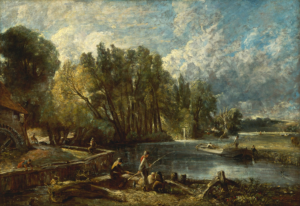
In 2015 the Brandler Galleries sponsored the Translation Challenge and we talked to John Brandler about his perspective on the Challenge and the role of translation in the world of Art.
Why did you decide to sponsor the Translation Challenge?
“I thought the students would find it interesting to have a more unusual piece of work to tackle. This was outside the routine translation tasks they would have needed to do to gain their degree.
“I think that part of any business’s responsibility is to stimulate the mind and encourage the youngsters coming along. I noticed that many of the students were not of English nationality and I thought they were clever to use their natural skills to gain a degree.”
What challenge did you set and why?
“They were asked to translate the home page on our website. I wanted the home page, at least, in several languages, so that if people landed on the website they’d feel more comfortable, being able to read it in their own language.
“We sell art all over the world and although our primary purchasers are from America, Germany and Japan and tend to be fluent in English, there are other nationalities interested in art who are less familiar with English.
“We deal with museums and collectors all over the world – and I thought having a web page in a selection of languages would gain new interest.”
Do you think translation services are important for international business?
“In England it’s unusual to find people who are fluent in other languages. This is not the case in Europe. Recently I visited Maastricht in Belgium and late at night lost my way to the hotel.
“There was nobody around except a road sweeper, I resorted to showing him a piece of paper with the hotel name on. ‘Oh, yes, it’s down there, second on the left then first right …’ he said.
“I was amazed that a road sweeper not only spoke English, but spoke it fluently. When even managers in UK companies who are responsible for international trade don’t speak any other language.
“There are people who take their English-German dictionary and try to communicate by translating word by word. But there are words that are simply not translatable in almost every language, so the translation loses the soul of what you’re trying to say.”.
So is it important for translations to be descriptive in the art world?
“Actually, most art information is factual and precise. Of course, there are art curators who write learned documents of many pages about a white canvas, but most buyers know what they want.
“We deal with a lot of businesses as well as private buyers and they want everything from Banksy and Damien Hirst, to Gainsborough and Constable. Prices range from £35 to just under £1M.
“While the language for art is predominantly English, I don’t believe people should be excluded if they aren’t fluent in it.”

